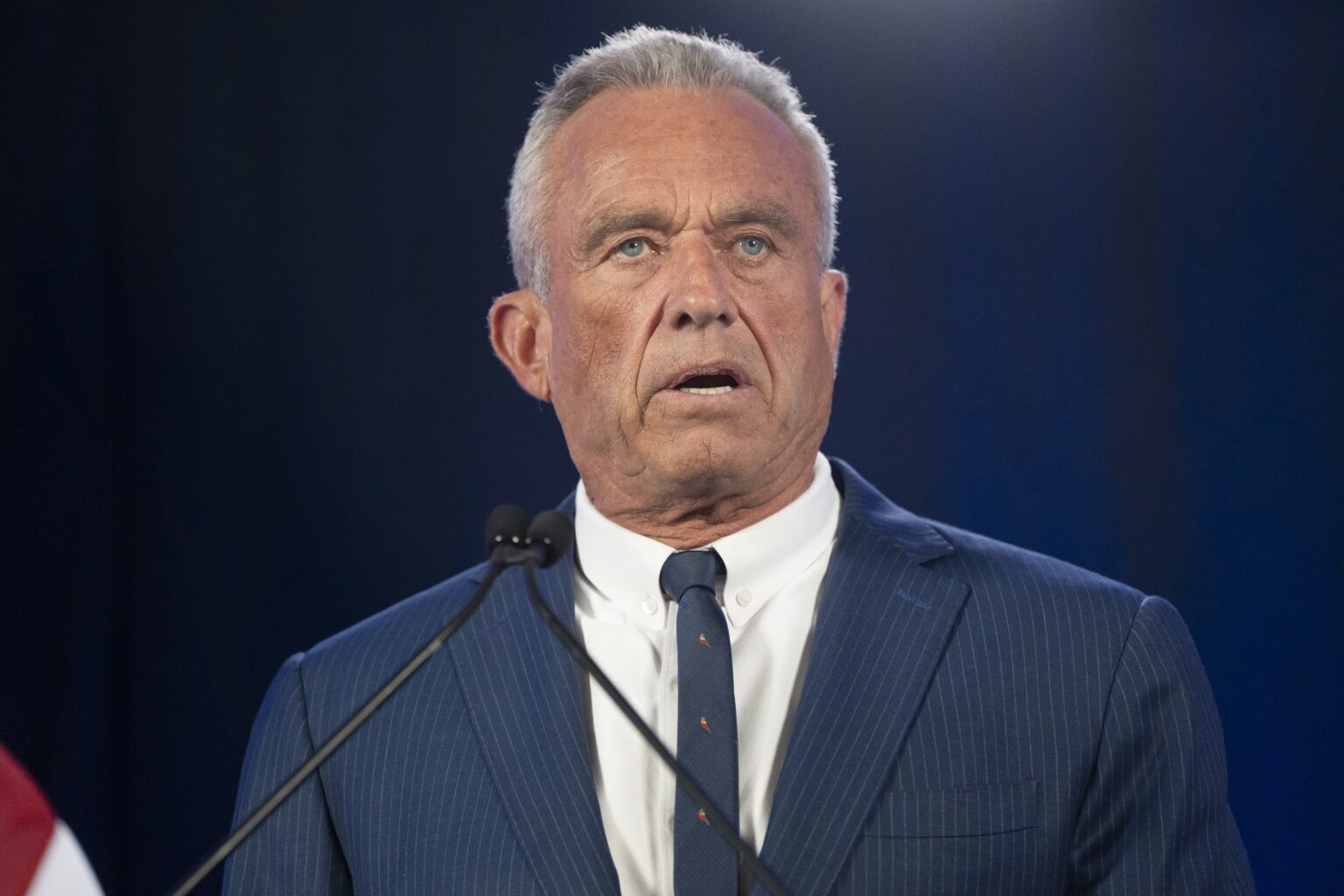Robert Kennedy Jr.’s Skepticism about Vaccines Raises Eyebrows in Senate Hearings
Robert F Kennedy Jr., who was recently nominated by President-Elect Donald Trump to head the Department of Health and Human Services, resumed his visit to Capitol Hill this week. He held meetings with several key Senate committee leaders. Coincidentally, the Democratic governor of Hawaii was also in attendance, choosing to use his time to lobby the Senate to withhold approval of Kennedy’s nomination.
Kennedy’s agenda included interactions with Senator Bill Cassidy, Chair of the Senate Health, Education, Labor, and Pensions Committee, and Bernie Sanders, who holds the ranking member spot. Despite Cassidy—a trained gastroenterologist—choosing to withhold judgment about the nomination prior to the meeting, no solid commitment was made following the encounter. Cassidy highlighted that they had conducted a ‘honest’ discussion, and eagerly awaited the upcoming hearings in both the HELP and Finance committees.
Given Kennedy’s open skepticism about vaccines, Cassidy, during a Fox News appearance over the weekend, made it clear that there were disagreements over this particular issue. Regardless, Cassidy confirmed that their conversations included an extensive discourse over vaccines.
Meanwhile, Governor Josh Green of Hawaii chose to focus on his personal encounter during the measles outbreak that occurred in Samoa back in 2019. This was closely tied to the period when Kennedy, along with wife Cheryl Hines—an actress by profession—visited Samoa, and questioned the efficacy of the country’s measles vaccination campaign.
Having served as an Emergency Room doctor, Governor Green had firsthand experience in Samoa during the outbreak. He tended to sick children and also participated in the vaccination effort. Utilizing his presence on Capitol Hill, he agreed to join a news conference hosted by House Democrats that day and outlined plans for meetings with senators later in the week, to deliberate on Kennedy’s proposed appointment.
Despite Kennedy’s assurances that he has no intentions to invalidate vaccines, Green expressed concerns over the influence of Kennedy’s discourse, which may discourage a significant majority from accepting immunization. Unperturbed about his readiness to support the Senate during this decision-making process, he offered to testify if called upon to do so.
The previous vaccine hesitancy reported in Samoa was traced back to an unfortunate incident where two children’s lives were lost due to a mistake in the vaccine administration process. Due to administrative errors, the vaccines were accidentally mixed with an expired muscle relaxant instead of the prescribed water solution, which led to the saddening outcome.
During Kennedy’s 2019 tour in Samoa, he got a chance to interact with several health officials and anti-vaccine proponents. At that time, the vaccination rate reported in Samoa was alarmingly low—only around 31 percent according to data released by the World Health Organization.
The numbers released by WHO with regards to the 2019 measles outbreak were quite daunting—5,707 reported cases and 83 fatalities. In a 2021 blog post, Kennedy characterized the initial 2019 outbreak in Samoa as ‘mild’ and suggested that the mortality rate escalated after the introduction of an Indian-manufactured vaccine.
However, Kennedy dispelled any notion that he had directly influenced the Samoan prime minister to discourage the public from accepting the measles vaccine. ‘While I acknowledge the measles outbreak, I wasn’t involved in the anti-vaxxing sentiment in Samoa,’ he adamantly stated.
Despite some Democrats supporting Kennedy’s ‘Make America Healthy Again’ campaign, Green emphasized that a potential ripple effect of Kennedy’s views on vaccines could complicate his reformist intentions towards Big Pharma and the food supply chain. He warily suggested ‘The admirable task of trying to reform Big Pharma and adjusting diets will be futile if we are caught amidst vast measles, mumps, rubella, polio, and meningitis outbreaks.’
Kim Schrier, a democratic representative from Washington, also joined Green at the news conference, agreeing fundamentally with Green’s viewpoint. As a pediatrician herself, she seconded the notion that the overemphasis on diet and exercise should not detract the general public from the vital practice of getting vaccinated.
Schrier went so far as to suggest that someone like Robert Kennedy Jr., who explicitly sows doubts about vaccines, should be disqualified from assuming a position that directly impacts public health policy. ‘The act of creating doubt about vaccines in the minds of the country’s citizens should indisputably disqualify Robert Kennedy Jr. from occupying this role,’ she firmly decreed.

